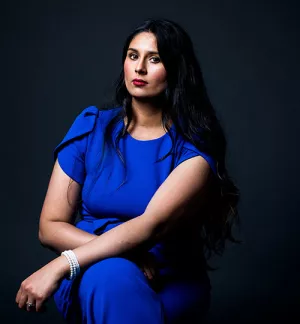In the late hours of January 20, 2020, while rocking my newborn just a few days old, I received a message from a colleague: the first U.S. lab-confirmed case of what we then called “the novel coronavirus” had been confirmed in Washington State. The official announcement would come the next day, but that private ping marked the moment the pandemic entered our lives.
As an infectious-disease epidemiologist, I had spent years preparing for and responding to outbreaks. As a mother of four, I was already living through another slow-burning crisis: the crushing cost of childcare and the impossible choices it forces on working parents.
For years, I’ve watched how this structural strain quietly determines who can participate fully in public life, who can work, who can rest, and who can build stability. That’s why Zohran Mamdani’s proposal for universal, zero-fee childcare in New York City deserves attention far beyond the five boroughs. It’s more than a campaign plank; it’s a public-health intervention, a prosperity catalyst, and a blueprint other jurisdictions can adapt.
The Hidden Cost of Raising Children
When I total what our family has spent on childcare over the past decade, the number reaches well into the six figures. Like countless working parents, I returned to work only a few short months after giving birth – twice just weeks after delivery - first paying for full-time nanny care (a bill that rivals a second mortgage), then for nursery school. Only one of my children ever benefited from free universal pre-K, and that was thanks to a lucky lottery draw.
Typical annual childcare costs in New York hover around $20,000 to $25,000 per child, and in New York City they often run higher, especially for infant slots and center-based care, where prices can push into the mid-$20,000s and beyond in many neighborhoods. Across the state, New York ranks among the most expensive childcare markets in the country, and NYC families face the steepest bills due to higher operating costs, limited supply, and intense demand.
Mamdani’s new Affordability Calculator translates those lived realities into numbers: a non–rent-stabilized tenant who rides the bus ten times a week and has two children under five would save roughly $45,960 per year if his three commitments, universal childcare, fare-free buses, and a rent freeze, were enacted. Those are the kinds of savings that turn precarity into stability for real families.
Childcare Is Public Health Infrastructure
Childcare isn’t a private luxury, its core infrastructure with measurable returns in population health, workforce participation, and community resilience.
- Protecting caregiver health.
Publicly funded childcare and universal pre-K lower parental stress, improve mental health, and increase employment, especially among mothers.
- Economic and workforce dividends.
The U.S. Treasury frames child care as an essential economic infrastructure: constrained supply limits maternal labor-force participation, raises employer costs from absenteeism and turnover, and imposes broader spillover losses. In short, investing in childcare multiplies returns.
- Healthy beginnings, lifelong returns.
The CDC’s Health Impact in 5 Years (HI-5) framework highlights early childhood education as an evidence-based intervention associated with improved cognitive, academic, and social development; it also notes links to higher maternal employment, reductions in crime and welfare dependency, and downstream health gains. These benefits compound across a lifetime.
- Equity and resilience.
Universal systems reduce fragmentation and stigma. During public-health emergencies, such as during the COVID-19 pandemic, reliable childcare enables essential workers to serve safely; in calmer times, it fosters social cohesion and family well-being.
Why Free Childcare Pays Off
Decades of international research confirm that universal childcare delivers cascading benefits:
These are not abstractions, they are measurable, peer-reviewed outcomes that improve both public health and economic vitality.
Why This Matters for New York and Beyond
New York City is uniquely positioned to lead. Families here face some of the nation’s highest childcare prices, with the average cost of infant–toddler care in family-based settings reaching $18,200 in 2024, a 79% increase since 2019.
Mamdani’s plan would make childcare free for every child aged 6 weeks to 5 years, expand pay for childcare workers, and transform a patchwork of 3-K and Pre-K into a universal system, serving roughly 500,000 children.
A citywide zero-fee childcare model would:
- Stabilize families and boost women’s employment, compounding the gains from universal pre-K
- Reduce financial toxicity, freeing income for rent, food, and savings
- Build resilience for future emergencies, ensuring essential workers can rely on dependable care.
Critics question the price tag, but the math on doing nothing is worse: workforce losses, out-migration, and widening inequality. According to the Fiscal Policy Institute, about 90% of New York State’s pandemic-era population loss is driven by New York City. Within the city, households with young children comprise roughly 30% of out-migrants and are more than twice as likely to leave as households without young children.
A Public Health Imperative
As someone who has balanced motherhood through nearly every major public health crisis of the past decade, I can say this with certainty: universal, zero-fee childcare is essential infrastructure.
It strengthens families, empowers women, fuels the economy, and safeguards community health. Mamdani’s vision can begin in New York City but it must not end there. Investing in childcare is investing in our collective resilience, one family, one community, one future at a time.



